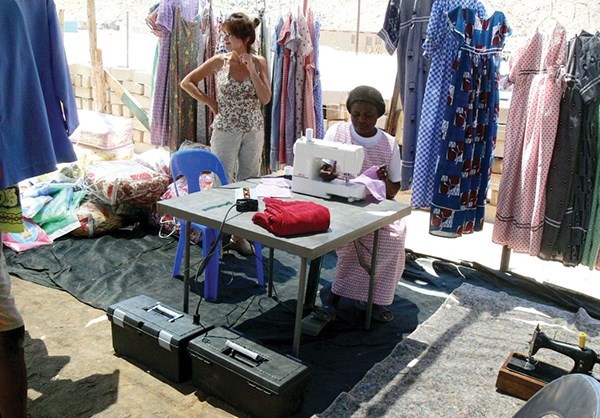Squamish will soon be home to a dozen ultramodern bus shelters that use the latest in alternative energy.
Incorporating technology by North Vancouver-based Zolair Energy, the new shelters will be fitted with LED lights under the roof, an interactive display that shows the precise location of each bus on route and the ability for waiting passengers to make a free 911 call in an emergency.
This 24-7 energy supply, running off a solar-fuel cell hybrid system, is available on demand and has no carbon footprint.
The advanced features will create a safer area for bus riders, said Zolair Energy’s CEO and technical director, Rolf Papsdorf. To make the wait more enjoyable, GPS signals will tell passengers precisely when to expect the next bus and how many seats are available.
The shelters were approved by Squamish council in January and the construction date is tentative but could begin this fall.
Papsdorf lives in Squamish and is currently scouting out places to possibly move his company from North Vancouver to Squamish, perhaps in the Sea to Sky Business Park.
“As our technology is green, has no toxic parts, is renewable and safe, I feel that Squamish could be a good place to manufacture and create new job opportunities,” he said.
His business is based on the Pila fuel cell, a nine-kilogram portable unit that allows for approximately one month of continuous electricity – to power lights, small appliances such as TVs and sewing machines, fridges, power tools and electronic devices – before the anodes need to be changed.
Last year, Zolair’s fuel cell technology was showcased in the street lights on a bridge that was built for the Squamish Music Festival. Unfortunately, after the festival concluded the installation was vandalized and all the equipment was stolen.
Although Squamish will be home to the newest project, much of Zolair’s work is overseas in South Africa, Thailand, Cambodia, Namibia and in two off-grid villages in India.
Beginning in November, the remote Indian communities will be given a reliable energy source, provided by the fuel cells, and Zolair will work in conjunction with the Bill Gates Foundation to bring broadband Internet access to the area.
Papsdorf plans to build a service shop and a school where students will learn how to build the fuel cells and eventually become technicians.
Once the pilot project is complete, 10,000 additional villages have been identified by Zolair’s partner company in India.
Back in Squamish, students at Howe Sound Secondary will likely be learning from Zolair next school year.
The program is in the initial stages of planning, but the hope is to have chemistry students learn how to build fuel cells and gain an appreciation for different kinds of alternative energy. Another possibility is the high school’s leadership classes raising funds to help the units be built in India.
“It has great potential for our school to work in a meaningful way with people in other parts of the world,” said Howe Sound Secondary’s principal Nick Pascuzzi.
“Youth today are very much into sustainability and minimizing the footprint in generating energy – and this meets that goal.”
Papsdorf wants to increase the involvement of students in Squamish and other areas of Canada so youth from both countries can benefit from the cooperation.
“It will let students teach students, and share valuable information.”
Zolair’s energy system is prepaid through a system where friends, family, crowdfunding initiatives or users themselves can purchase energy credits.
“This means you can use your smartphone or Internet, purchase a certain amount of energy in watt hours for a small amount – like $5 – and activate in real-time our energy unit that will now disburse the energy to the end user,” said Papsdorf, adding the technology could have come in handy for people who wanted to charge their cellphones at the Pemberton Music Festival, where there were limited sources of energy available.
“I believe micro-energy is the way of the future. We want to promote green energy.”
(Editor's note: The District of Squamish sent a clarification that it is not aware of any new bus shelters to be installed in Squamish that incorporate Zolair Energy technology. The shelters were not approved by council in January. If there is a proposal to fund and install such bus shelters, the District said in the statement that it is very interested in hearing about it and has reached out to Zolair Energy to learn more.)



